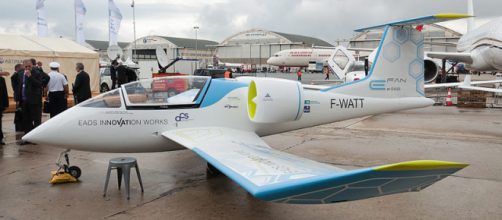The electric revolution has entered the automobile industry in a big way with Electric Cars hogging the limelight. These will replace conventional ones that run on fossil fuels which add to the greenhouse gas effect and Global warming. There is the idea that air transport should follow suit and switch over to electrically-powered aircraft so that the environment is not damaged.
The Straits Times reports that Norway is taking the lead in this area. It is the largest oil and gas producer in Western Europe and is a pioneer in the field of electric transport.
It launched the first electric ferry in early 2015 and now aims to reach the target of zero emission by 2025.
Electrically-operated planes
The International Air Transport Association (IATA) has forecast that the number of air passengers will double by 2036. In order to counter the effect of greenhouse gases action must be taken in time to reduce global warming and save the environment.
Airbus and Boeing are manufacturers of large passenger aircraft. They are exploring the problem, and are exploring the viability of an alternative to fossil fuels by checking out electric planes. It seems Airbus is working on a hybrid model in association with Britain’s Rolls Royce and Germany’s Siemens – its first flight is planned for 2020.
Dag Falk-Petersen, head of Norway’s public airport operator Avinor, believes that his country will embrace electric aircraft by 2040. Norway has gone in for electric cars and other electrically-operated vehicles on land and water in a big way. It has now turned its attention to the air beginning with introducing it on all short haul flights.
Possible problems
According to an official of Airbus, the biggest problem for electrically-operated aircraft is related to storage. The weight of the batteries will be more than that of conventional fuel and hauling them will require extra energy. Moreover, fossil fuels burn up and the weight reduces but the weight of the batteries will remain constant. Therefore, suitable technology must evolve to take care of such hurdles.
Incidentally, a start-up partly financed by Boeing has drawn up plans to bring a 12-seat hybrid plane to the market by 2022. It expects to capitalize on savings in fuel costs and offer fares to keep with such trends. The operating cost of electric planes is expected to be less because of cheap electricity and simpler motors which will be an advantage.
The 2015 Paris accord on climate change has highlighted the evils of global warming caused by greenhouse gases and alternate sources of energy must be identified to ensure a safe environment. A couple of options are electricity and solar energy. Already the market is up-beat about electric cars, and the entry of aircraft operating on electricity is only a matter of time.


